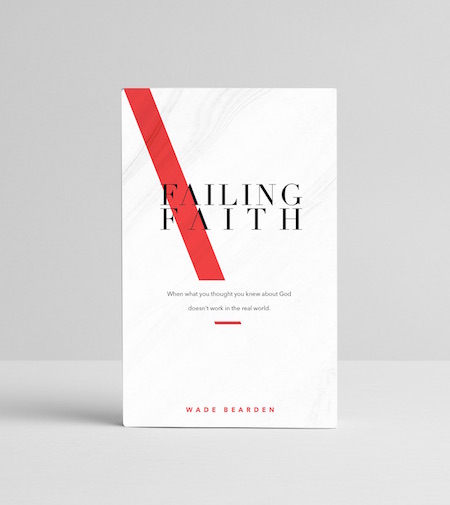
Russell Crowe in Noah – Paramount Pictures
Noah doesn’t hit theaters for another month, but that doesn’t mean we can’t enjoy some controversy early. Rumors over the film’s assumed extra-biblical content are circulating faster than it takes to click “Share to News Feed.” There are even a few church leaders—who have yet to see the film—calling for an outright boycott. One Christian writer has gone as far as calling the script a “waste of a hundred and fifty-million dollars.”
This raises an important question: how should Christians respond to the new Bible epic starring Russell Crowe and Emma Watson? Run amuck in the streets singing, “We’re Not Gonna Take It?” Burn something down? Noah might not be completely biblical, but can it still be redeemed?
Here are six thoughts followers of Jesus need to keep in mind when wrestling with these questions:
1. Don’t Overreact
Audiences shouldn’t be surprised by the controversy. Darren Aronofsky—the same Aronofsky who helmed films like Black Swan and Requiem for a Dream—is directing Noah. I don’t think anyone can deny that Aronofsky is a talented filmmaker, but his work isn’t exactly childproof. We can expect the same of this project. Noah will be much grittier than the version we were taught using paper cutouts in Sunday School.
The Genesis account of the flood is only four chapters long. In those four chapters, Noah has a mere three verses of dialogue (and this takes place when he’s hungover). Readers don’t even know much about his personality other than he was a “righteous man, blameless in his generation” (6:9).
Turn this into a compelling two-hour movie. There will be extra-biblical material. That’s just the nature of Bible movies. Give the film some grace. Learn to distinguish between artistic expression and an anti-Christian worldview.
Can we disagree with some of the content? Of course. Should we stir up an online frenzy? Probably not.
Why? See my second point.
2. Use Noah as a Catalyst for Religious Conversation
Let’s say, for clarity’s sake, particular themes and scenes within Noah aren’t just extra-biblical, but unbiblical. If Christians only choose to focus on these discrepancies, they’ll be missing an opportunity to use the film as an opportunity to converse with others about God.
Noah releases about a month after another Bible film, Son of God. While I appreciate Son of God’s commitment to scriptural accuracy, I just don’t think the film is going to generate much discussion among the unchurched. Most of the people who see the movie will be Christians. Its outreach potential looks minimal (I hope I’m wrong).
Then Noah, a big-budget blockbuster starring Gladiator and Hermione, enters the scene. People are going to be talking.
When will you have a better chance to chat with your friends about the Bible? Like I mentioned previously, you don’t have to agree with everything in the film, but you can use it as a launching pad to discuss topics like sin, divine judgement, and redemption.
3. Don’t Throw Away the Good
Noah might get a few things wrong. It’s possible it might get more than a few things wrong. But don’t discount the entire film because certain particulars diverge from the Genesis narrative. Watch the film critically, but be willing to admit what it did well and what it did wrong. This will give more weight to your opinions. It will also help others who love the film be more receptive to what you have to say.

Emma Watson in Noah – Paramount Pictures
4. Do Your Research
Do your research before the film releases. Some individuals who grew up in church are surprised when they realize Genesis never mentions Noah being criticized by his peers for building a cruise ship for animals. There’s not even any “I ‘sea’ you” puns or anything (if I would have been there).
Some of our ideas about the story are shaped more by culture than the Bible. Critically study Genesis 6-9. Be able to answers questions as well as defend your interpretation.
The best place to start is the book of Genesis. From there, I encourage you to check out a good commentary—by good I mean written by an individual with the credentials to write such a commentary. Commentaries aren’t always fun to work through, but they’re your best bet. I recommend the Genesis volume from the Expositor’s, Tyndale, NIV Application, or New American Commentary collections.
5. The Bible is Messy
Have you read the story of Noah lately? Remember what happens when he gets off the boat?
Noah began to be a man of the soil, and he planted a vineyard. He drank of the wine and became drunk and lay uncovered in his tent (Genesis 9:20-21).
Noah was a drunk (whether this was a constant amusement or not, we’re not sure). He also forgot to wear pants.
If Noah were 100% biblical, it would be rated R for nudity and violence (just imagine all those people drowning). I personally don’t want to see Russell Crowe in the nude so let’s hope for some creative shot compositions.
Here’s what Christians have to understand: the Bible is grim, it’s gritty, and it isn’t always kid-friendly. I don’t blame you if you aren’t comfortable watching a rated R film—even if it is based on the Bible. This is where you have to follow your own convictions.
But you can’t have your cake and eat it too. It’s hypocritical for us to only define “biblical” as safe. Biblical is not safe. Biblical is messy.
6. Recognize Good Art
I can’t draw worth anything. My stick figures look like they just arrived from a first grade art show. Sorry, to insult all the first graders reading this. I may draw a theologically accurate picture—e.g. Jesus on the cross—but it should never be allowed to hang alongside the Mona Lisa.
In the same way, just because a movie or story has a Christian message doesn’t mean it’s very good art. There are many Christian movies that are theologically correct, but terrible films. Recognize the artistry of Noah. While the worldview may be off, there still might be much to appreciate.
In her article, “Why We Review R-Rated Films,” Christianity Today’s chief film critic Alissa Wilkinson makes an important remark regarding how Christians should interact with cinema.
You and I never have a moral imperative to see any film—whether it’s well made, or has a solid worldview, or is funny or enjoyable or hard-hitting. But there is a moral imperative we do all have: to love our neighbors as we love ourselves. Loving someone means being able to live life alongside her. It means being able to talk about what matters to her. It means we go out of our way—we sacrifice our own time and comfort—in order to do what Jesus did: enter someone else’s world, take on her concerns as our own, and identify with another person.
Noah may not be “biblical,” but it’s still a great opportunity to reach out to those around us. Whether you watch Noah or not, I hope you will keep Alissa’s words in mind. How might you use this film as a way to help others know Jesus better?
Check out my review of Noah here. The film is rated PG-13 for violence, disturbing images and brief suggestive content.




